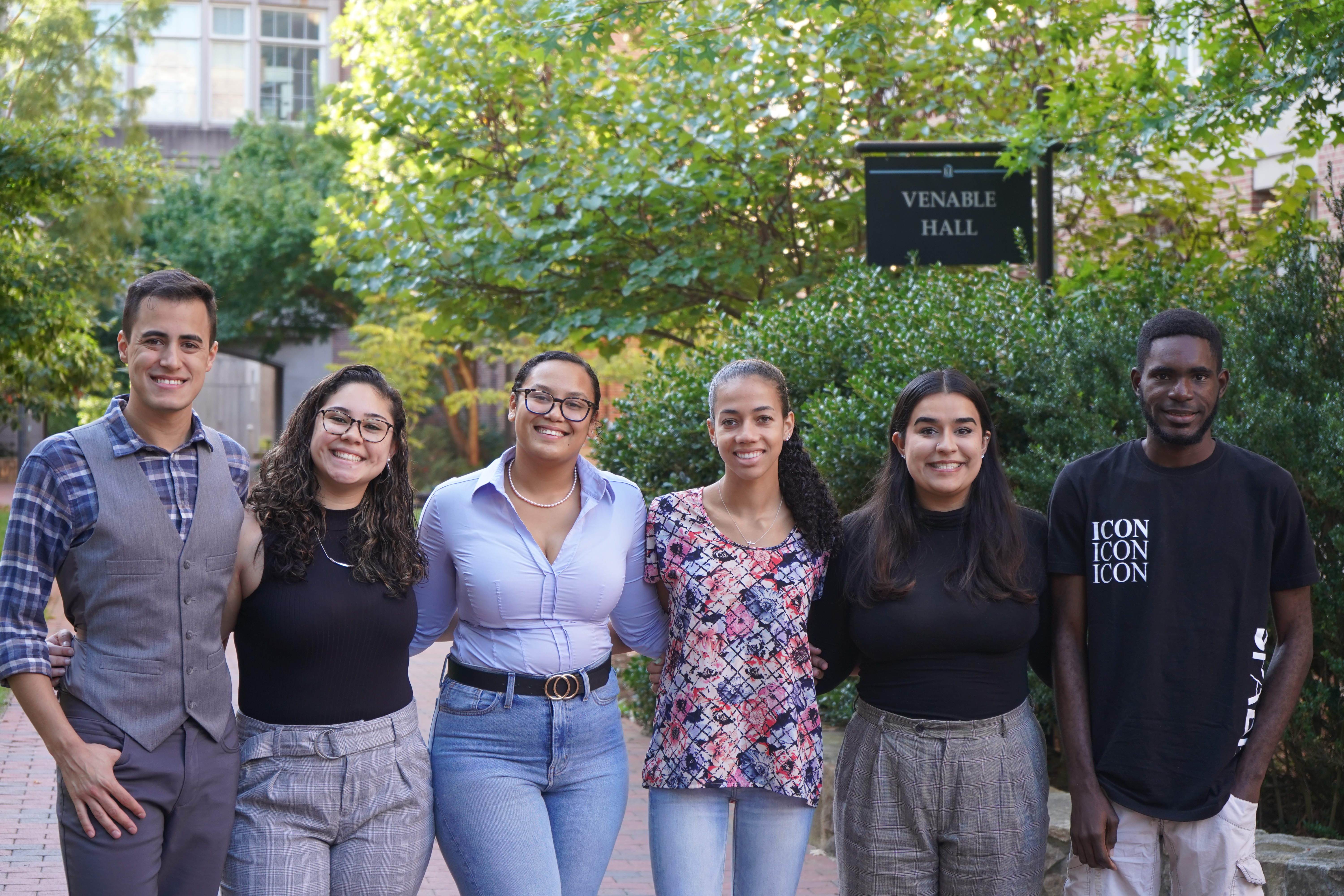September 19, 2022 | By UNC-Chapel Hill Chemistry Communication
We are pleased to announce the 2022 recipients of the Eastman Chemical Company Fellowships. The Eastman Chemical Company Fellowship program is an award bestowed to first year graduate students for their committed effort to enhance the departmental mission to create a diverse and inclusive community. Sponsored by the Eastman Chemical Company, Eastman Fellows receive a stipend that supports the continuation of their contributions to the Carolina Chemistry community. The group of students form a cohort to further fellowship and continue on their educational endeavors together.
Below are the recipients of the Eastman Chemical Fellowship 2022 award:
- Nicholas Calzadilla – Nicholas worked on responsive disulfide linked polymer-drug nanoparticles for cancer therapy while at the University of Miami. He looks to expand his Organic Chemistry skills in areas of synthesis for potential environmental and medicinal benefit.
- Rayshell Torres-Santana – Rayshell’s time at Radford University was focused on forensic chemistry and toxicology, where she examined epinephrine degradation using liquid and gas chromatography.
- Tsian Ramrattan -Tsian spent her time at Emory University working with pharmaceutical data with the Liotta Group, and as part of the Salaita Lab, which focuses on the role of mechanical forces in cell biology and tumor development.
- Sarina Jones – Sarina’s research interests lie in the broad topics of protein-protein interactions and drug mechanism/drug discovery. She is passionate about how drugs interact in the body and how we as chemists can manipulate and control these interactions in order to develop and design new drugs to improve treatment and disease, and hopes to study this at UNC.
- Kriti Shukla – While in undergrad at UCLA, Kriti used computational chemistry techniques to determine the mechanisms of organic reactions and also used bioinformatics to look at how diet affects fish gut microbiome. She remembers her summer research programs fondly, when she had opportunities to work on optimizing statins to treat mRCC and explore the phototactic properties of thermophilic cyanobacteria. While at UNC, she now hopes to use bioinformatics and computational chemistry techniques to look at how mutations in proteins affect downstream expression.
- Kelvin Idanwekhai – As an undergrad at Obafemi Awolowo University, Kelvin worked to design dyes that could be used in dye-sensitized solar cells(DSSCs) by tuning their electronic properties, using theoretical and computational methods. After he graduated, he worked as a software/machine learning engineer. As part of UNC Chemistry, he plans to work on developing fast and accurate models/algorithms for high-throughput molecular property prediction.


